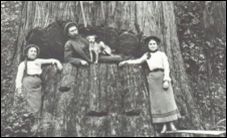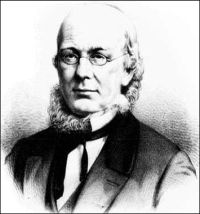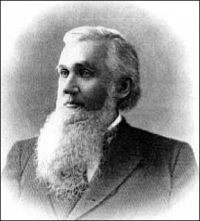You can click the donation button to contribute to the rising costs of this site. You can also subscribe to our optional Subscribers-Paid Journal magazine online, which is about to enter its seventh year with exclusive stories, in-depth research and photos that are shared with our subscribers first. You can go here to read the preview edition to see examples of our in-depth research.
|
|
|
 Story posted April 21, 2007 Story posted April 21, 2007
 See this Journal website for a timeline of local, state, national and international events for years of the pioneer period. See this Journal website for a timeline of local, state, national and international events for years of the pioneer period.
 Did you enjoy this story? Remember, as with all our features, this story is a draft and will evolve as we discover more information and photos. This process continues until we eventually compile a book about Northwest history. Did you enjoy this story? Remember, as with all our features, this story is a draft and will evolve as we discover more information and photos. This process continues until we eventually compile a book about Northwest history.
 Can you help? We welcome correction and criticism. Can you help? We welcome correction and criticism.
 Please report any broken links or files that do not open and we will send you the correct link. With more than 550 features, we depend on your report. Thank you. Please report any broken links or files that do not open and we will send you the correct link. With more than 550 features, we depend on your report. Thank you.
 Read about how you can order CDs that include our photo features from the first five years of our Subscribers Edition. Perfect for gifts. Read about how you can order CDs that include our photo features from the first five years of our Subscribers Edition. Perfect for gifts.
You can read the history websites about our prime sponsors
Would you like information about how to join them?
 Jones and Solveig Atterberry, NorthWest Properties Aiken & Associates: . . . See our website Jones and Solveig Atterberry, NorthWest Properties Aiken & Associates: . . . See our website
Please let us show you residential and commercial property in Sedro-Woolley and Skagit County
2204 Riverside Drive, Mount Vernon, Washington . . . 360 708-8935 . . . 360 708-1729
 Schooner Tavern/Cocktails at 621 Metcalf Street in downtown Sedro-Woolley, across from Hammer Square: www.schoonerwoolley.com web page . . . History of bar and building Schooner Tavern/Cocktails at 621 Metcalf Street in downtown Sedro-Woolley, across from Hammer Square: www.schoonerwoolley.com web page . . . History of bar and building
 Oliver Hammer Clothes Shop at 817 Metcalf Street in downtown Sedro-Woolley, 82 years. Oliver Hammer Clothes Shop at 817 Metcalf Street in downtown Sedro-Woolley, 82 years.
 Joy's Sedro-Woolley Bakery-Cafe at 823 Metcalf Street in downtown Sedro-Woolley, 82 years. Joy's Sedro-Woolley Bakery-Cafe at 823 Metcalf Street in downtown Sedro-Woolley, 82 years.
 Check out Sedro-Woolley First section for links to all stories and reasons to shop here first Check out Sedro-Woolley First section for links to all stories and reasons to shop here first
or make this your destination on your visit or vacation.
 DelNagro Masonry Brick, block, stone — See our work at the new Hammer Heritage Square DelNagro Masonry Brick, block, stone — See our work at the new Hammer Heritage Square
 Are you looking to buy or sell a historic property, business or residence? Are you looking to buy or sell a historic property, business or residence?
We may be able to assist. Email us for details.
 Peace and quiet at the Alpine RV Park, just north of Marblemount on Hwy 20 Peace and quiet at the Alpine RV Park, just north of Marblemount on Hwy 20
Park your RV or pitch a tent by the Skagit River, just a short drive from Winthrop or Sedro-Woolley
|

 810 Central Ave.,
810 Central Ave., 

